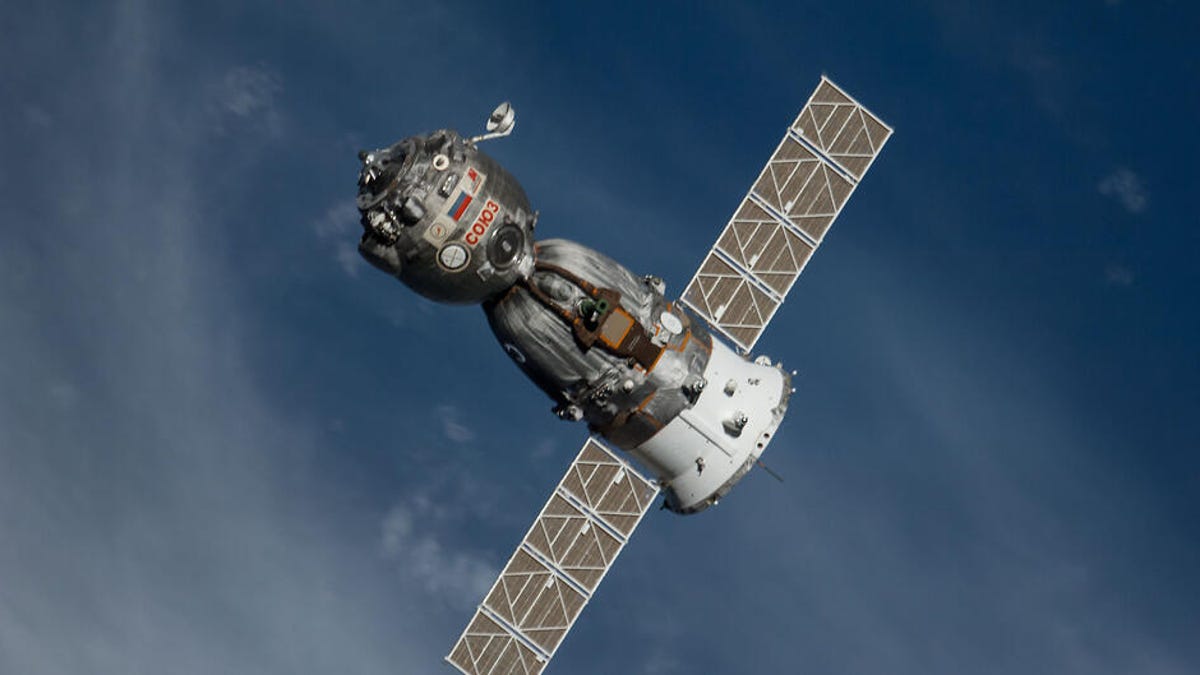NASA may barter for seat on Russian Soyuz spacecraft, just in case
SpaceX's Crew Dragon is in service for astronauts heading to the International Space Station, but NASA still wants a backup plan.

A Soyuz spacecraft departs from the ISS in 2014.
NASA's Commercial Crew Program has been all about bringing astronaut launches back to US soil. The SpaceX portion of the program is working well, but a NASA astronaut might still launch from soil in Kazakhstan.
NASA said Tuesday that it's considering reserving a ride to the International Space Station on a spring launch of a Russian Soyuz spacecraft.
SpaceX's Crew Dragon is now conducting regular flights back and forth to the ISS, and Boeing, the other commercial crew partner, expects to conduct a second uncrewed test flight in March. SpaceX is planning for a Crew-2 mission launch in April. NASA said these efforts "demonstrate continued progress."
"Securing an additional Soyuz seat assures the back-up capability of at least one U.S. crew member aboard the International Space Station in the event of a problem with either spacecraft," the agency said in a statement. NASA is considering providing in-kind services to Russia rather than outright purchasing a Soyuz seat.
NASA is aiming to continuously have a US crew member on board the ISS. The current crew return schedule could create a gap in that if SpaceX's Crew-2 mission is delayed or doesn't reach the station in April. A Soyuz seat would be a safeguard.
"At NASA, we have a phrase we use often -- dissimilar redundancy. That's NASA speak for saying we always have a back-up plan that ensures we have a path forward even if we encounter an issue with our initial approach," said Robyn Gatens, NASA's acting director for the ISS.
Follow CNET's 2021 Space Calendar to stay up to date with all the latest space news this year. You can even add it to your own Google Calendar.

